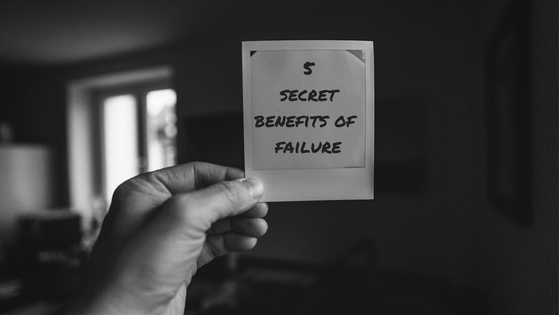We live in a culture with a focus on success and an avoidance of talking about failure.
The drive for perfection is sold everywhere we turn. We do not celebrate failure. However, failure is worth celebrating.
If you fail that means you are alive and you tried. That is worthy of celebration.
And more importantly, failing creates all kinds of emotions inside of us. When we fail, that is the ideal opportunity to get even closer to ourselves and grow as people perhaps with the help of a trusted other.
5 emotions failure might bring up:
- Disappointment
- Embarrassment
- Sadness
- Anger
- Fear
Take a look at the list. Consider the last time you did not succeed at something. What out of those 5 emotions did you feel the most strongly? Are there any emotions on that list that you are surprised to see? Does failure bring up something else for you?
When we put some space around failures and let ourselves experience what they bring up for us, it can be a rich exploration into our inner world, inner workings, and big opportunities for growth.
Though, let’s be honest when we are not feeling our best due to something not working out the last thing we want to do is examine our feelings…yet that is where the magic happens.
Emotions are emotions; none of them are good or bad. They just are…and the more we feel and move through them, the more we grow.
As we explore and express what might be labelled as the more challenging or difficult emotions around failure, we can learn learn so much.
The 5 secret benefits of failure:
- Yearning
- Humility
- Tenderness
- Power
- Vulnerability
How are these beneficial?
- Yearning: when we can tap into our yearnings, name them and know what we want and need without shame, the world becomes much more fertile. We learn to tolerate disappointment and tap into our deepest wishes and never give up on pursuing them even in the face of failure.
- Humility: when we can step back and allow our embarrassment to wash through us we can realize most people are not judging us and we can also let our own inner judge off the hook. We are human and humans are all imperfect.
- Tenderness: when we can be with our sadness around loss and what could have been if we had achieved success, we can open to an innate, wise tenderness inside of ourselves and take comfort there.
- Power: when we feel anger (without letting it blindly dictate our actions) we can use this powerful energy for good and cultivate it towards trying again, or course correcting, vs. lashing out at others or ourselves.
- Vulnerability: when we face our fear we come eye to eye with our own vulnerability, we can see just how much courage it takes to put ourselves out there despite uncertainty.
In the psychotherapeutic relationship we make space for failure. In fact, we might even eventually celebrate it.
Interested in working with me to unravel your relationship to failure and your emotions? Learn more here.
Jennifer DiGennaro MA, LLPC, is a psychotherapist and couples counselor in private practice in Grand Rapids, MI. She is a Certified Clinical Trauma Professional, Certified Body Trust® Provider and Certified Intuitive Eating Counselor, as well as the founder of Nourished Energy. She specializes in treating chronic dieting, binge eating disorder, body image concerns, trauma, PTSD, mood disorders and relationship issues. She brings a deep passion for social justice to her trauma-informed, evidence-based and heart-centered clinical work. She is committed to ending the war that is waged against bodies in our culture. Learn more at: www.nourishedenergy.com/meet-jen/





